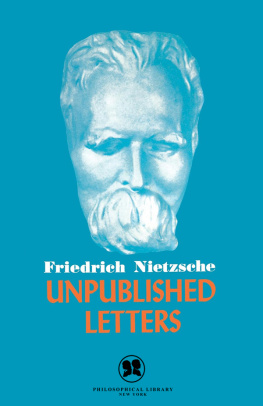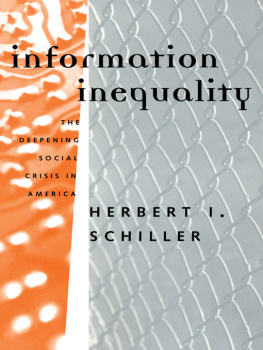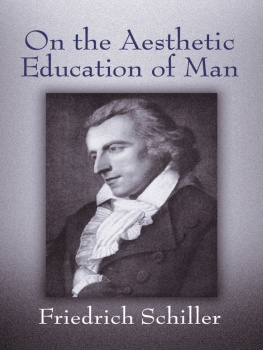Schiller Friedrich von - Philosophical Letters
Here you can read online Schiller Friedrich von - Philosophical Letters full text of the book (entire story) in english for free. Download pdf and epub, get meaning, cover and reviews about this ebook. genre: Science. Description of the work, (preface) as well as reviews are available. Best literature library LitArk.com created for fans of good reading and offers a wide selection of genres:
Romance novel
Science fiction
Adventure
Detective
Science
History
Home and family
Prose
Art
Politics
Computer
Non-fiction
Religion
Business
Children
Humor
Choose a favorite category and find really read worthwhile books. Enjoy immersion in the world of imagination, feel the emotions of the characters or learn something new for yourself, make an fascinating discovery.
- Book:Philosophical Letters
- Author:
- Genre:
- Rating:4 / 5
- Favourites:Add to favourites
- Your mark:
- 80
- 1
- 2
- 3
- 4
- 5
Philosophical Letters: summary, description and annotation
We offer to read an annotation, description, summary or preface (depends on what the author of the book "Philosophical Letters" wrote himself). If you haven't found the necessary information about the book — write in the comments, we will try to find it.
Philosophical Letters — read online for free the complete book (whole text) full work
Below is the text of the book, divided by pages. System saving the place of the last page read, allows you to conveniently read the book "Philosophical Letters" online for free, without having to search again every time where you left off. Put a bookmark, and you can go to the page where you finished reading at any time.
Font size:
Interval:
Bookmark:
Project Gutenberg's The Philosophical Letters, by Frederich Schiller
This eBook is for the use of anyone anywhere at no cost and with
almost no restrictions whatsoever. You may copy it, give it away or
re-use it under the terms of the Project Gutenberg License included
with this eBook or online at www.gutenberg.net
Title: The Philosophical Letters
Author: Frederich Schiller
Release Date: October 26, 2006 [EBook #6799]
Language: English
*** START OF THIS PROJECT GUTENBERG EBOOK THE PHILOSOPHICAL LETTERS ***
Produced by Tapio Riikonen and David Widger
PREFATORY REMARKS. LETTER I. LETTER II. LETTER III. LETTER IV. THEOSOPHY OF JULIUS. LETTER V. ON THE CONNECTION BETWEEN THE ANIMAL AND THE SPIRITUAL NATURE IN MAN. PHYSICAL CONNECTION. PHILOSOPHICAL CONNECTION. |
The reason passes, like the heart, through certain epochs and transitions, but its development is not so often portrayed. Men seem to have been satisfied with unfolding the passions in their extremes, their aberration, and their results, without considering how closely they are bound up with the intellectual constitution of the individual. Degeneracy in morals roots in a one-sided and wavering philosophy, doubly dangerous, because it blinds the beclouded intellect with an appearance of correctness, truth, and conviction, which places it less under the restraining influence of man's instinctive moral sense. On the other hand, an enlightened understanding ennobles the feelings,the heart must be formed by the head.
The present age has witnessed an extraordinary increase of a thinking public, by the facilities afforded to the diffusion of reading; the former happy resignation to ignorance begins to make way for a state of half-enlightenment, and few persons are willing to remain in the condition in which their birth has placed then. Under these circumstances it may not be unprofitable to call attention to certain periods of the awakening and progress of the reason, to place in their proper light certain truths and errors, closely connected with morals, and calculated to be a source of happiness or misery, and, at all events, to point out the hidden shoals on which the reason of man has so often suffered shipwreck. Rarely do we arrive at the summit of truth without running into extremes; we have frequently to exhaust the part of error, and even of folly, before we work our way up to the noble goal of tranquil wisdom.
Some friends, inspired by an equal love of truth and moral beauty, who have arrived at the same conviction by different roads, and who view with serener eye the ground over which they have travelled, have thought that it might be profitable to present a few of these resolutions and epochs of thought. They propose to represent these and certain excesses of the inquiring reason in the form of two young men, of unequal character, engaged in epistolary correspondence. The following letters are the beginning of this essay.
The opinions that are offered in these letters can only be true and false relatively, and in the form in which the world is mirrored in the soul of the correspondent, and of him only. But the course of the correspondence will show that the one-sided, often exaggerated and contradictory opinions at length issue in a general, purified, and well-established truth.
Scepticism and free-thinking are the feverish paroxysms of the human mind, and must needs at length confirm the health of well-organized souls by the unnatural convulsion which they occasion. In proportion to the dazzling and seducing nature of error will be the greatness of the triumphs of truth: the demand for conviction and firm belief will be strong and pressing in proportion to the torment occasioned by the pangs of doubt. But doubt was necessary to elicit these errors; the knowledge of the disease had to precede its cure. Truth suffers no loss if a vehement youth fails in finding it, in the same way that virtue and religion suffer no detriment if a criminal denies them.
It was necessary to offer these prefatory remarks to throw a proper light on the point of view from which the following correspondence has to be read and judged.
Julius to Raphael. October.
You are gone, Raphaeland the beauty of nature departs: the sere and yellow leaves fall from the trees, while a thick autumn fog hangs suspended like a bier over the lifeless fields. Solitary, I wander through the melancholy country. I call aloud your name, and am irritated that my Raphael does not answer me.
I had received your last embrace. The mournful sound of the carriage wheels that bore you away had at length died upon my ear. In happier moments I had just succeeded in raising a tumulus over the joys of the past, but now again you stand up before me, as your departed spirit, in these regions, and you accompany me to each favorite haunt and pleasant walk. These rocks I have climbed by your side: by your side have my eyes wandered over this immense landscape. In the dark sanctuary of this beech-grove we first conceived the bold ideal of our friendship. It was here that we unfolded the genealogical tree of the soul, and that we found that Julius was so closely related to Raphael. Not a spring, not a thicket, or a hill exists in this region where some memory of departed happiness does not come to destroy my repose. All things combine to prevent my recovery. Wherever I go, I repeat the painful scene of our separation.
What have you done to me, Raphael? What am I become? Man of dangerous power! would that I had never known or never lost you! Hasten back; come on the wings of friendship, or the tender plant, your nursling, shall have perished. How could you, endowed with such tender feelings, venture to leave the work you had begun, but still so incomplete. The foundations that your proud wisdom tried to establish in my brain and heart are tottering; all the splendid palaces which you erected are crumbling, and the worm crushed to earth is writhing under the ruins.
Happy, heavenly time, when I groped through life, with bandaged eyes, like a drunken man,when all my knowledge and my wishes were confined to the narrow horizon of my childhood's teachings! Blessed time, when a cheerful sunset raised no higher aspiration in my soul than the wish of a fine day on the morrow; when nothing reminded me of the world save the newspaper; nothing spoke of eternity save the passing bell; only ghost-stories brought to mind the thought of death and judgment; when I trembled at the thought of the devil, and was proportionately drawn to the Godhead! I felt and was happy. Raphael has taught me to think I am on the way to regret that I was ever created.
Creation? No, that is only a sound lacking all meaning, which my reason cannot receive. There was a time when I knew nothing, when no one knew me: accordingly, it is usual to say, I was not. That time is past: therefore it is usual to say that I was created. But also of the millions who existed centuries ago nothing more is now known, and yet men are wont to say, they are. On what do we found the right to grant the beginning and to deny the end? It is assumed that the cessation of thinking beings contradicts Infinite Goodness. Did, then, Infinite Goodness cone first into being at the creation of the world? If there was a period when there were no spirits, Infinite Goodness must have been imperative for a whole eternity. If the fabric of the universe is a perfection of the Creator, He, therefore, lacked a perfection before the creation of the world. But an assumption like this contradicts the idea of perfect goodness, therefore there is no creation. To what have I arrived, Raphael? Terrible fallacy of my conclusions! I give up the Creator as soon as I believe in a God. Wherefore do I require a God, if I suffice without the Creator?
Font size:
Interval:
Bookmark:
Similar books «Philosophical Letters»
Look at similar books to Philosophical Letters. We have selected literature similar in name and meaning in the hope of providing readers with more options to find new, interesting, not yet read works.
Discussion, reviews of the book Philosophical Letters and just readers' own opinions. Leave your comments, write what you think about the work, its meaning or the main characters. Specify what exactly you liked and what you didn't like, and why you think so.










